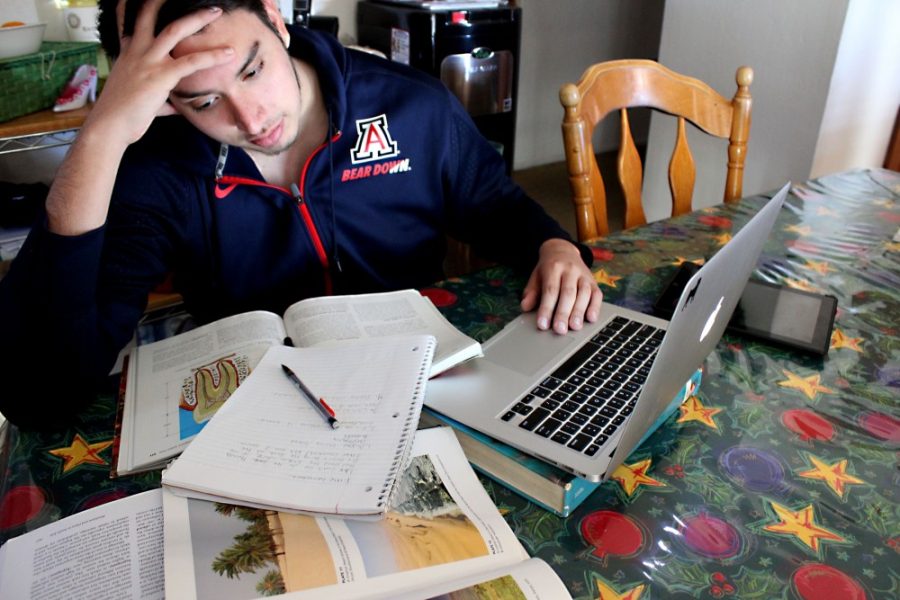As university students, stress is an everyday part of our lives—whether we like it or not.
College puts students under excess amounts of stress, and all too often students are unable to deal with it in a healthy way.
With finals coming up fast, it is important to try and get a better understanding of what stress itself means for you.
Researchers found that 40.8 percent of students felt an above-average amount of stress in the previous 12 months, while nearly 10 percent reported experiencing a tremendous amount of stress within that time period, according to a 2013 National College Health Assessment.
“Stress is the No. 1 health problem in our country,” said Debra Cox-Howard, a mental health clinician with Campus Health Services. “It is your reactions to the events in your life. Stress can be positive or negative. Too much stress leaves you feeling fatigued, tense, edgy—not enough stress and you become bored and unproductive.”
It’s important to remember that stress impacts everyone in a different way. It is often quite unique in its manifestation as well as what alleviates it.
“Stress is not just about what happens,” Cox-Howard said. “It is also about your perception of these events. Each person responds differently, both physically and psychologically, to stressful events.”
RELATED: UA immunologist answers questions on why you should get the flu vaccination
The ramifications of stress extends well beyond anxiety or a simple headache. The 2013 National College Health Assessment polled students and found about 10 percent of students had even considered suicide within the previous year. So, how should students deal with stressful times in a healthy way?
Cox-Howard suggests to avoid having too many things on your to-do list.
“Recognize what is in your control to change and what is not,” Cox-Howard said. “Learn how to reduce your physical reaction to stress—yoga, meditation class, listening to music. … Physical activity burns off stress and gives you an emotional lift.”
The American Heart Association recommends 150 minutes of moderate-intense exercise per week. However, the 2013 National College Health Survey suggests that only about 20 percent of college students are meeting that recommendation.
Eric Thomas, a senior instruction specialist with the Student Recreation Center, said he strives to treat both the physical and mental sides of stress every day.
“Whether there are external or intrinsic factors, it will always start with the individual’s thinking,” Thomas said. “One of the most common underlying attributes for stress is a lack of control or fear of what may happen. When we begin to train a client, we begin to provide that individual a new sense of control and ultimately confidence to face difficult situations with more vigor and intent.”
RELATED: UA researchers win NIH grant for autoimmune disease work
Stress can be so overwhelming that a new exercise routine won’t always suffice. At some point, the decision has to be made to seek professional help. But how can one recognize when their stress gets out of hand?
Cox-Howard encourages students to keep an eye on a number of symptoms.
“It is important to assess three things,” Cox-Howard said. “What you are experiencing—backaches, cold hands, cold sores, fatigue; what you are changing—alcohol and drug use, crying, eating habits; and what you are feeling—angry, anxious, depressed; and how these [feelings] are negatively affecting your daily life.”
UA Counseling and Psych Services can help when stress begins to feel like it’s too much. They offer support and services to any UA student or faculty, who can set up appointments and access mental health resources on CAPS’ website.
Follow Chandler Donald on Twitter.









